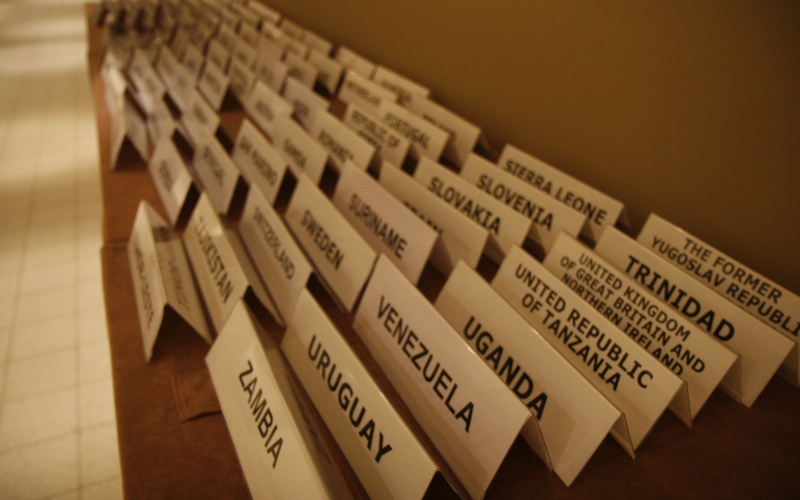Election of budget experts key to independence of ICC

The Committee on Budget and Finance (CBF) is a technical expert body tasked with examining financial, budgetary, and administrative documents submitted by the International Criminal Court (ICC) to the Assembly of States Parties (ASP) as part of the Court's complicated annual budget review.
The final ICC budget for the upcoming judicial year (2018) is agreed upon by States Parties at the ASP’s annual meeting - taking place this year from 4-14 December in New York.
Before that meeting, and twice annually, the CBF must convene to consider and make recommendations on the resources that the Court has requested to be able to fulfill its various prosecutorial, judicial, and organizational functions, as well as to meet its obligations to defendants and victims.
The recommendations of the CBF are a key tool relied on by states to their decisions on the Court’s annual budget. These decisions in turn impact the activities of the Court, including in terms of the investigations and cases it can pursue.
The ability of the Court and its organs to carry out their work - and ultimately for the ICC to remain an independent justice mechanism - is based just as much on the CBF's findings as on how states take these findings into consideration. The budget process is year-long and often politically-fraught, making it imperative that the CBF is composed of independent and highly-qualified experts.
Competitive elections a must
At the upcoming ASP session, states will hold an election to fill six soon-to-be vacant seats on the CBF. The CBF is made up of 12 members, nominated and selected by the ASP based on equitable geographic representation.
The ASP resolution establishing the CBF (Resolution ICC-ASP/1/Res.4) stipulates that the CBF members "shall be experts of recognized standing and experience in financial matters at the international level from States Parties."
As part of its campaign on ASP and ICC Elections, the Coalition for the ICC urges States Parties to nominate only the most highly-qualified candidates to these positions. The campaign further calls on States Parties to promote competitive elections, including by avoiding 'clean-slate' elections, which guarantee some candidates elections and effectively discourage other States Parties from fielding their own candidates.
While the ASP resolutions governing the elections of the CBF do encourage consensus candidates, this practice should never be applied at the expense of a competitive field of nominees and could lend itself to nominations on political grounds rather than qualifications.
By avoiding clean-slate elections and other questionable practices like vote-trading, States Parties not only enable fresh insight and expertise to enter the Court's critical budget review process, but also may help remedy any gender imbalances that are present in the body's composition.
The nominees
At the closing of the nomination period on 8 October 2017, 8 candidates had been nominated for the 6 positions:
Asia-Pacific
1. Ms. Abuel, Janet Braganza (Philippines)
2. Mr. Gharaibeh, Fawzi A. (Jordan) incumbent CBF member
3. Mr. Kozaki, Hitoshi (Japan) incumbent CBF member
Africa
1. Ms. Shava, Margaret Wambui Ngugi (Kenya)
Latin America and the Caribbean
1. Ms. Sánchez Izquierdo, Mónica (Ecuador) incumbent CBF member
Eastern Europe
1. Ms. Sopková, Elena (Slovakia) incumbent CBF member
Western Europe and Other States
1. Ms. Shanker, Neelu (Canada)
2. Ms. Eiken Holmgren, Ingrid (Sweden)
Related documents
CICC Budget and Finance Team statement to the CBF - 29th session
